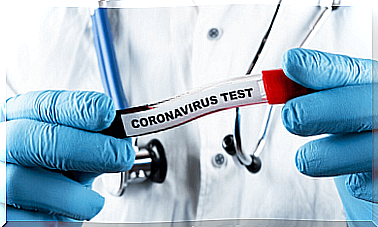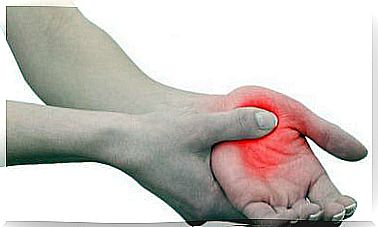6 Signs Of Appendicitis You Shouldn’t Ignore
Not realizing the signs of appendicitis in time can complicate the situation and lead to peritonitis which can be life threatening .

The appendix is a small, tube-like organ that is connected to the first part of the large intestine, just in the lower right area of the abdomen.
It has no known function in the human body. She still has within many lymphoid follicles of the immune system, similar to those found in the tonsils.
Appendicitis occurs when this organ becomes blocked or inflamed, which interferes with the flow of blood and also increases pressure in the area.
It does not generate great danger in its first stages. However, it is essential to detect it as early as possible because the infection can spread if it is allowed to develop.
In severe cases, it can lead to peritonitis, a complication with great risk to the life of the patient.
It is therefore important to be aware of certain signs which, although they may be confused with other conditions, are crucial in order to consult our doctor and receive a timely diagnosis.
1. Abdominal inflammation
Abdominal inflammation or distension is characterized by an annoying feeling of pressure and swelling. It is almost always associated with digestive difficulty.
- In this particular case it is a very common symptom, since the blockage of the appendix triggers an inflammatory reaction which, as the disease progresses, spreads throughout the digestive system.
- It should also be mentioned that the patient may also suffer from gas build-up.
2. Pain in the lower right part of the abdomen
One of the first manifestations of appendicitis is acute abdominal pain. It is usually located in the lower right part of the abdomen, that is, the area where this organ is located.
- The symptom gradually increases, as the inflammation and pressure in the appendix increases due to its obstruction.
- Pain can come on and off. She nevertheless usually lasts a long time as the disease progresses.
- It is common for patients to feel it more severely when they sneeze or make a sudden movement.
- In some cases, the pain extends to the belly button and lower back.
3. Dizziness and vomiting
When dizziness and vomiting suddenly appear, it is very important to activate the warning signs of appendicitis.
While not all cases indicate this disease, it is essential to consider this possibility. Especially if they are accompanied by other symptoms.
- About 90% of diagnosed cases had this symptom, right after experiencing severe pain in the lower abdominal area.
- When appendicitis is not treated in time and the infection begins to spread, vomiting and dizziness are more common.
4. Sudden loss of appetite
Inappetence is one of the consequences of the inflammation that occurs in the system due to the blockage suffered by the appendix in this condition.
These reactions interfere with the proper functioning of the digestive system. They also affect the segregation of hunger hormones.
- Patients therefore tend to have complications due to nutritional deficiencies.
- Although at first it may seem normal, it is a symptom that requires a medical evaluation in time.
5. Fever
The inflammation and pressure experienced by this organ due to appendicitis tend to manifest itself with symptoms similar to those of other gastrointestinal infections.
Affected patients therefore often experience fever and chills. They are also accompanied by a characteristic pain in the abdomen.
- It is a symptom that should not be overlooked. This is because although it can be controlled with remedies, it tends to reappear when the inflammation becomes more complicated.
- Although the temperature variation is small, it is necessary to consult the doctor if it is accompanied by other digestive symptoms.
6. Constipation or diarrhea
When there is an inflammatory reaction in the body, product of the blockage of the appendix, it is common that the tendency to suffer episodes of constipation or diarrhea increases.
- Patients stop having normal bowel movements. Some people then feel the need to go to the bathroom several times, others begin to go less often, with more difficulty.
- In these cases, both problems are accompanied by abdominal inflammation and gas.
When should we see the doctor?
After identifying these symptoms, it is essential to see the doctor as soon as possible to receive proper diagnosis and treatment.
Keep in mind that although the symptoms may be associated with other pathologies of the digestive system, it is better to analyze them with professional help.
The doctor may perform a physical exam, blood tests, and a wide variety of tests that can accurately identify the disease.
The first symptoms of appendicitis usually involve the gradual onset of cramping, mild diarrhea, or pain throughout the abdomen.
It is essential to know how to recognize the symptoms of appendicitis and to seek immediate medical attention. Otherwise, complications may arise that could endanger the patient’s life.









